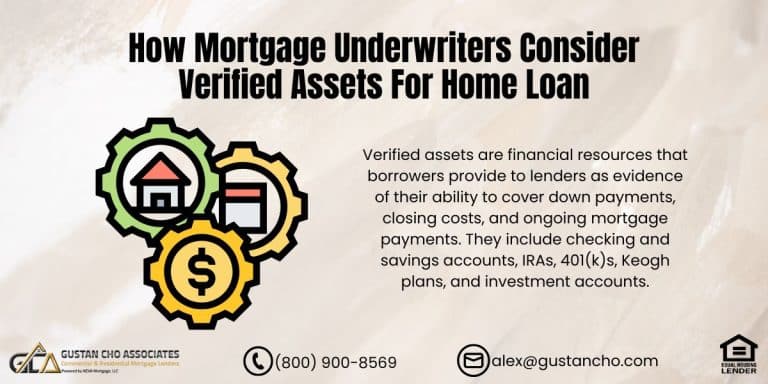Preparing for a Mortgage in Illinois: Step-by-Step Guide for Homebuyers
Buying a home is one of the biggest financial decisions you’ll ever make — and preparing for a mortgage in Illinois can be the key to having an easy closing instead of a super stressful one.
At Gustan Cho Associates, we specialize in helping Illinois borrowers navigate the entire mortgage process with confidence. Understanding the Illinois mortgage process can help you save time, money, and frustration, whether you’re a first-time homebuyer or purchasing your next property.
In this guide, we’ll explain everything you need to know about preparing for a mortgage in Illinois, including unique state-specific details, what documents to gather, and how to work with your loan officer for a fast, stress-free closing.
Key Takeaways: Preparing for a Mortgage in Illinois
- Illinois is not a community property state, so a non-borrowing spouse’s debts and credit are excluded.
- Real estate attorneys handle closings instead of title companies — a major difference from most states.
- Property taxes are paid in arrears, giving buyers valuable tax-credit funds at closing.
- A solid pre-approval with verified income, assets, and credit is the foundation of a smooth process.
- Organization and documentation are crucial — missing pages or slow responses can delay underwriting.
- Gustan Cho Associates offers no-overlay loans and 21-day Fast-Track TBD approvals, helping Illinois buyers close faster and easier.
Preparing for a Mortgage in Illinois — Start Your Checklist
Attorney closings, Illinois-style tax prorations, and the exact docs you’ll need—made simple.
Why Preparing for a Mortgage in Illinois Is Different
The mortgage process in Illinois has some unique steps compared to other states:
1. Illinois is not a community property state.
Your spouse’s credit or debt isn’t considered unless they are on the loan. In states like Texas or California, both spouses’ debts count — but not in Illinois.
2. Real estate attorneys are required.
In Illinois, it is common for both buyers and sellers to have real estate attorneys manage the closing process rather than relying on the title company. This ensures your contract and title work are reviewed by a legal professional.
3. Property taxes are paid in arrears.
Illinois homeowners pay property taxes for the previous year at closing. Homebuyers can often use property tax prorations from the seller toward their down payment or closing costs — a major advantage unique to Illinois.
Step 1: Get Prequalified Before House Hunting
The first step in preparing for a mortgage in Illinois is to get prequalified or pre-approved by a lender.
At Gustan Cho Associates, we believe the pre-approval stage is where most buyers either set themselves up for success — or get into trouble.
Unfortunately, over 80% of our clients come to us after being denied or delayed by another lender because they weren’t properly qualified upfront. Many banks issue “pre-approvals” without thoroughly verifying income, credit, or assets.
A solid pre-approval should include:
- Full review of income and assets
- Tri-merge credit report
- AUS (Automated Underwriting System) findings
- Debt-to-income ratio calculations
- Verification of funds for the down payment and closing
Pro Tip: Don’t just shop for the lowest rate — shop for a lender with experience, transparency, and no overlays. At GCA, we issue fully underwritten TBD pre-approvals that are strong enough to close fast.
Step 2: Organize Your Documents Early
Being organized is key to preparing for a mortgage in Illinois. You’ll receive a document request list once your loan officer reviews your credit and AUS results. The faster you provide these items, the faster your file moves.
Here’s a checklist to help you get mortgage-ready:
Mortgage Readiness Checklist (Illinois)
- 2 years of W-2s and federal tax returns
- 30 days of most recent pay stubs
- 60 days of bank statements
- Driver’s license and Social Security card
- Divorce decree (if applicable)
- Bankruptcy or foreclosure paperwork (if applicable)
- Child support or alimony documentation
- Letter of explanation for any credit issues or gaps in employment
Tip: Always include all pages of documents — even the blank ones. Missing pages cause delays and underwriting conditions.
Step 3: Understand the Illinois Mortgage Process
Preparing for a mortgage in Illinois starts with a key step: submitting your documents. After you’ve pulled together all the needed paperwork, a mortgage processor will review your file. This person checks your documents to ensure they are complete and accurate before sending them off to underwriting.
A solid and organized file is super important when preparing for a mortgage. A well-structured submission speeds things up and helps avoid delays. If your application is incomplete, it could lead to extra requests or hold-ups from the underwriter, pushing back your closing date. So, it’s important to pay attention to the details and ensure your documentation is spot on.
At Gustan Cho Associates, we understand that preparing for a mortgage in Illinois can be tricky, which is why our processors focus on sending only complete files. By being detail-oriented, we help make the underwriting process smoother and faster. Our goal is to make sure you get your mortgage approval efficiently and reach closing without unnecessary bumps in the road.
Step 4: Write Letters of Explanation (LOEs)
Don’t panic about credit issues, late payments, or past bankruptcies. You can still qualify for a mortgage in Illinois — even with:
- Collections and charge-offs
- Past bankruptcy or foreclosure
- Late payments or judgments
You’ll need to provide a Letter of Explanation (LOE) that clarifies what happened and how the situation has been resolved. Your loan officer will help you write this professionally and clearly.
Example:
“I had late payments in 2022 due to temporary unemployment. Since then, I’ve returned to full-time work and maintained on-time payments for over 12 months.”
Step 5: Mortgage Underwriting and Conditional Approval
After the processor submits your file, an underwriter reviews it for accuracy and compliance with FHA, VA, USDA, or conventional guidelines.
If everything checks out, you’ll receive a conditional loan approval — meaning the underwriter needs a few final items before issuing your Clear to Close (CTC).
Common Conditions Include:
- Updated pay stubs or bank statements
- Verification of employment (VOE)
- Appraisal updates or contract extensions
- Proof of funds to close
Once these are cleared, your lender will issue the Clear to Close — the final green light before signing.
Step 6: Cash to Close and Property Tax Prorations in Illinois
One of the most significant differences when preparing for a mortgage in Illinois is how property tax credits work.
Since property taxes are paid in arrears, the seller typically gives the buyer a credit for last year’s taxes at closing. That credit can reduce the cash you need to bring to closing.
Example Scenario:
- Home purchase price: $100,000
- FHA down payment (3.5%): $3,500
- Property taxes: $3,000
- Seller tax credit: $3,000
Result: Buyer only needs $500 cash to close!
Keep in mind: Seller concessions can only be used for closing costs, not for the down payment.
Illinois Closing Costs & Property Tax Prorations — Know Before You Bid
See real numbers for attorney/title fees and prorations so there are no surprises at closing.
Case Study: First-Time Buyer in Naperville, IL
Buyer: Maria L., first-time homebuyer
Credit Score: 620
Loan Type: FHA Loan
Challenge: Recently paid off collections and had limited savings
Solution:
Maria contacted Gustan Cho Associates after another lender denied her application. Our team ran her file through the AUS and issued a TBD pre-approval. We helped her use the seller’s property tax prorations to cover most of her down payment and guided her through document prep.
Result:
Maria closed on her new home in just 21 days — stress-free and with minimal cash to close.
Step 7: Final Walkthrough, Closing, and Attorney Coordination
In Illinois, your real estate attorney will review your final loan documents and closing disclosure (CD). Attorneys handle the title and deed transfer, ensuring your closing is legally sound.
Before closing:
- Review your final loan terms
- Confirm cash-to-close amount
- Schedule your final walkthrough
- Verify property condition matches the purchase agreement
Once everything checks out, you’ll attend closing with your attorney, sign the documents, and receive your keys!
Gustan Cho Associates: Your Illinois Mortgage Partner
At Gustan Cho Associates, we understand the Illinois housing market — because it’s our home, too. Our corporate office is in Lombard, Illinois, and we’ve helped thousands of borrowers across the state qualify for home loans with no lender overlays.
Why Illinois borrowers choose GCA:
- No overlays on FHA, VA, USDA, or conventional loans
- 21-day fast-track TBD approvals
- 7-day-a-week availability, including evenings and holidays
- Transparent communication from start to finish
Work with Us
The team at Gustan Cho Associates has over 30 years of mortgage lending experience, licensed in multiple states, and specializes in helping borrowers others can’t approve.
Our commitment is simple: “We close loans other lenders can’t — and we do it on time, every time.”
Borrowers who need a five-star national mortgage company licensed in 50 states with no overlays and who are experts on preparing for a mortgage in Illinois, please contact us at 800-900-8569, text us for a faster response, or email us at alex@gustancho.com
Frequently Asked Questions About Preparing for a Mortgage in Illinois:
Q: How Early Should I Start Preparing for a Mortgage in Illinois?
A: Start 3–6 months before applying to give yourself time to improve your credit and organize documents.
Q: What Credit Score Do I Need for a Mortgage in Illinois?
A: FHA loans are flexible with credit scores. You can get one with a score as low as 580 if you put down just 3.5%, or if your score is 500, you’ll need to put down 10%.
Q: Do I Need an Attorney for a Mortgage in Illinois?
A: Yes, most buyers and sellers in Illinois hire real estate attorneys to handle closings.
Q: Can I Use Tax Prorations for My Down Payment?
A: Yes, Illinois buyers can use seller property tax credits toward their down payment or cash to close.
Q: How Long Does the Mortgage Process Take in Illinois?
A: With Gustan Cho Associates’ 21-day Fast-Track TBD Program, most loans close in 21 days or less.
Q: What Documents Should I Prepare Before Applying?
A: Gather income, asset, identification, and debt verification documents (W-2s, tax returns, pay stubs, bank statements, etc.).
Q: Can I Get a Mortgage with Bad Credit in Illinois?
A: Yes. GCA specializes in no-overlay FHA and VA loans that allow borrowers with low credit or past credit issues.
Q: What Makes Illinois Property Taxes Unique?
A: They’re paid in arrears, which allows buyers to use the seller’s tax credit at closing.
Q: What is a Conditional Loan Approval?
A: It’s a preliminary approval from underwriting, pending additional documents, before the final Clear to Close.
Q: Who Can Help Me Get Started with a Mortgage in Illinois?
A: Contact Gustan Cho Associates at 800-900-8569 or apply online — we’re available 7 days a week.
This article about “Preparing for a Mortgage in Illinois: What You Must Know” was updated on October 13th, 2025.
Documents Needed for an Illinois Mortgage — Upload Once
W-2s/1099s, bank statements, ID, and more—organized for faster underwriting.









